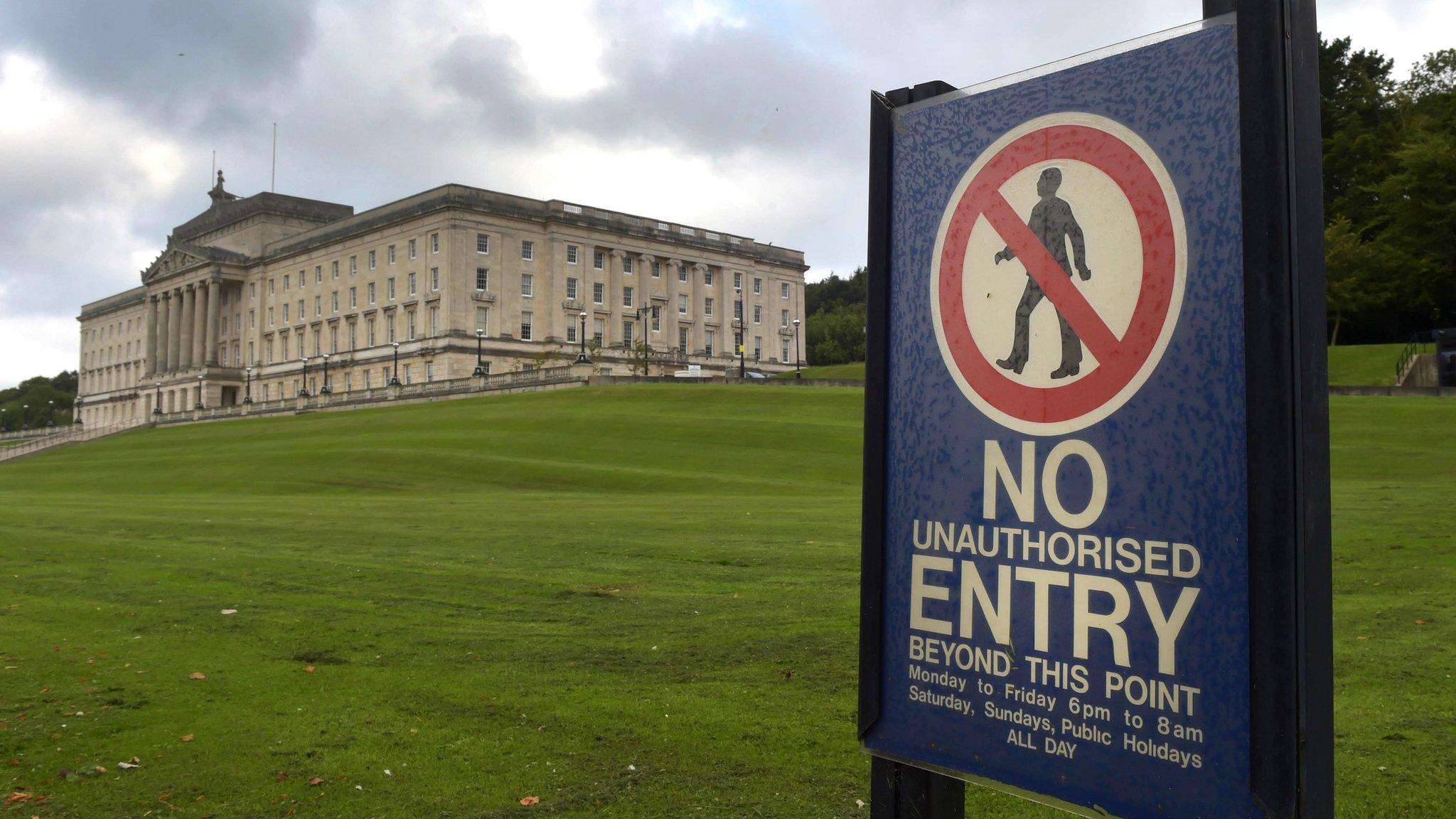Stormont crisis: DUP's Simon Hamilton accused of abandoning health service
- Published
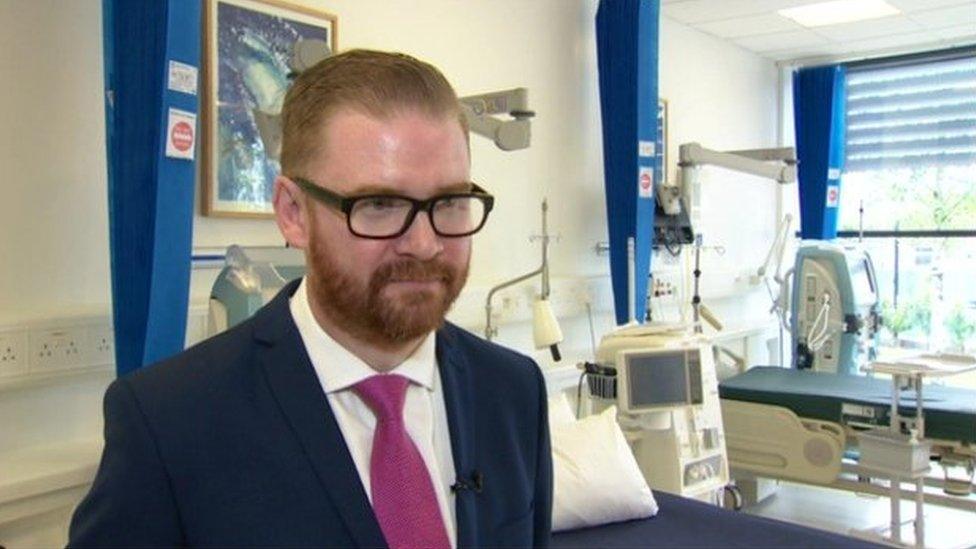
Mr Hamilton resigned along with several other DUP ministers as a result of the political crisis at Stormont
The DUP's Simon Hamilton has been accused of abandoning Northern Ireland's health service during a debate at the assembly.
During a debate on increasing hospital waiting lists, there was an appeal for him to return to the department.
Mr Hamilton resigned along with several other DUP ministers as a result of the political crisis at Stormont.
He said that while it was not business as usual at Stormont, "it doesn't mean that we can't do business".
"We will still be taking decisions which are to the benefit of the people of Northern Ireland when we are in the post," he said.
'Businesslike'
Talks to resolve the deadlock have been continuing at Stormont.
Northern Ireland Secretary Theresa Villiers said Tuesday's round of talks, focusing on unresolved finance and welfare issues, were "businesslike, with an acceptance across the board that these issues have to be resolved".
"Without the implementation of the Stormont House Agreement, including welfare reform and public sector reform, the Executive's budget simply does not add up, posing a real threat to the delivery of front line public services in Northern Ireland," she said.
"We will be returning to these issues tomorrow."
During the assembly debate on Tuesday, MLAs voted in favour of a motion expressing grave concern about the the absence of a health minister.
Waiting times
The department is currently vacant, due to the DUP's "no business as usual" approach to the political crisis concerning alleged IRA activity.
The motion, proposed by Sinn Féin, expressed concern about the need for a minister to address issues like waiting times and the health sector pay review.
Forty-eight MLAs backed the motion and 31 voted against.
The crisis at Stormont was sparked by allegations that IRA members were involved in the murder of a man in Belfast last month.
In the wake of the killing of Kevin McGuigan Sr, police said the IRA still existed, but added that it was not engaged in terrorism.
Commissioned
Sinn Féin said the IRA had "gone away".
The Ulster Unionist Party subsequently withdrew from Northern Ireland's ruling executive, saying Sinn Féin's denials had caused a breakdown in trust.
Three Democratic Unionist Party ministers then quit the executive, with the party's leader Peter Robinson stepping aside as first minister.
The two unionist parties agreed on Friday to join cross-party talks when the government commissioned an independent review of paramilitary organisations in Northern Ireland.
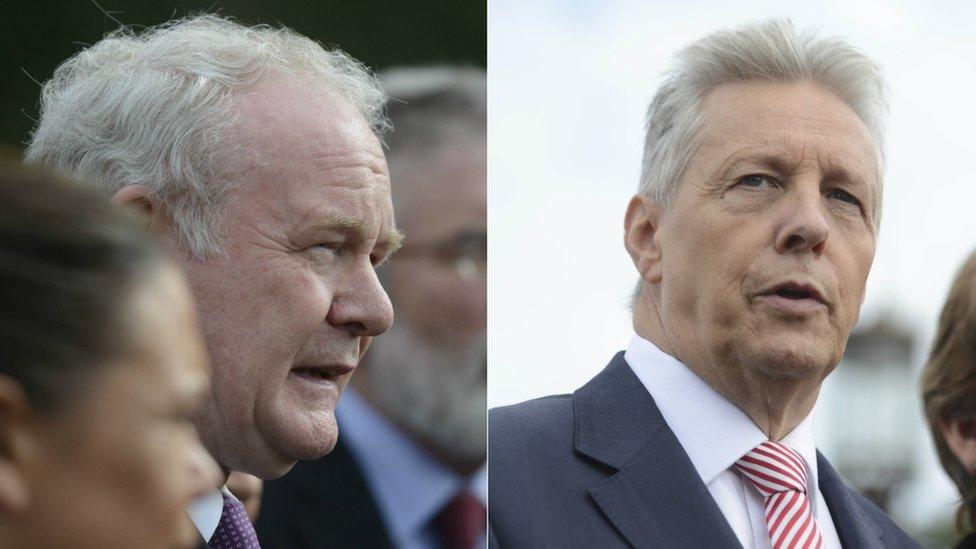
Martin McGuinness and Peter Robinson will be at the heart of the talks between the five main parties
Acting first minister and finance minister Arlene Foster told the assembly that Tuesday's discussions had been delayed to facilitate Question Time at Stormont.
"Already it is having an impact in terms of the intensity of the talks and I regret that," she said.
Mrs Foster added: "I regret the fact that other parties did not agree to an adjournment so that we could focus exclusively on the talks process."
'Real difficulty'
Sinn Féin's Conor Murphy said the British and Irish governments had to play a "constructive role" in helping to achieve a resolution.
"All parties made it very clear that the ongoing impact of Tory austerity policies and the prospect of further cuts is creating a very real difficulty in terms of fulfilling our programme for government commitments," he said.
"The British and Irish governments have a role to play in ensuring the executive has a workable and sustainable budget."
Alex Attwood of the nationalist SDLP said: "London has to change the script from 'no more money for welfare' to 'more money for work'."
Speaking after meeting Ms Villiers on Tuesday, he said his party had outlined proposals "for better investment in skills, infrastructure and childcare to create better conditions for better work".

The story of Stormont's crisis
Stormont's political upheaval was sparked by allegations that Provisional IRA members were involved in the murder of Kevin McGuigan Sr
Row erupted after a senior Sinn Féin member was arrested as part of the inquiry into Mr McGuigan's death. He was later released without charge
Northern Ireland First Minister Peter Robinson stepped aside; all but one of his Democratic Unionist Party ministers resigned
Finance Minister Arlene Foster is now acting first minister

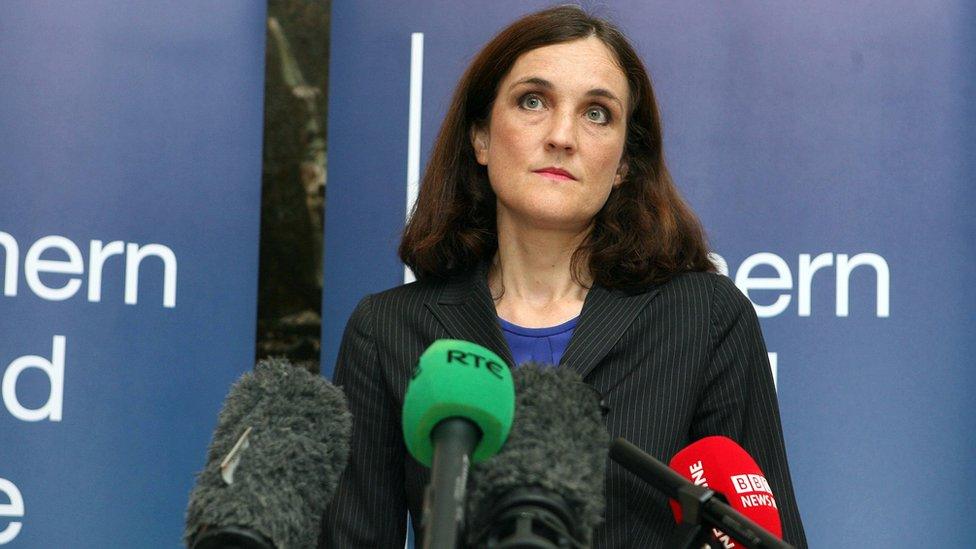
Theresa Villiers said there had been a "series of focused and productive discussions" on Monday
On Monday, there were tense exchanges between Sinn Féin and the other parties around the issue of criminality.
Sinn Féin's Martin McGuinness, the deputy first minister, said anyone with evidence linking his party to crime should go the police.
Ms Villiers said she was encouraged that the parties had shown commitment to dealing with the impact and legacy of paramilitary activity.
Meanwhile, church leaders have urged the politicians to restore hope to those who feel disillusioned with the assembly and the executive.
- Published22 September 2015
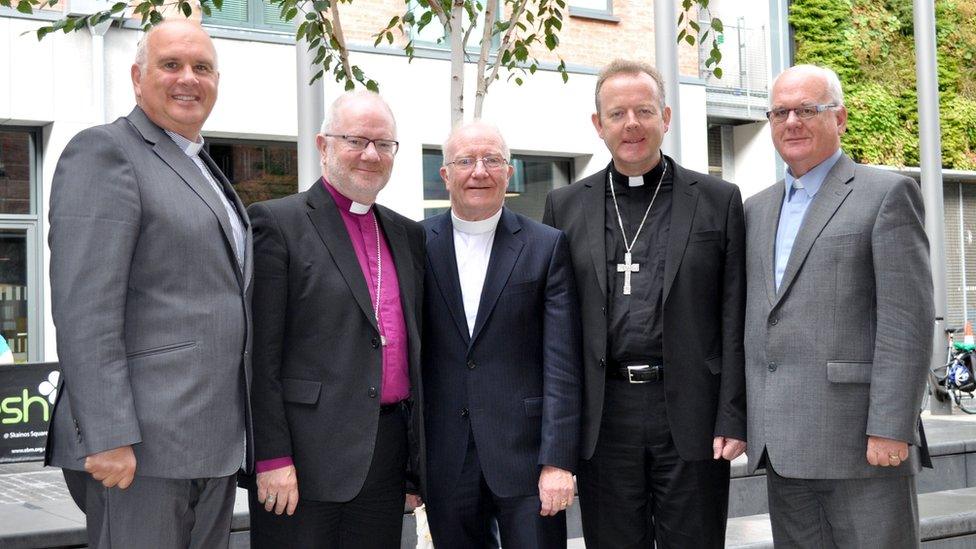
- Published21 September 2015
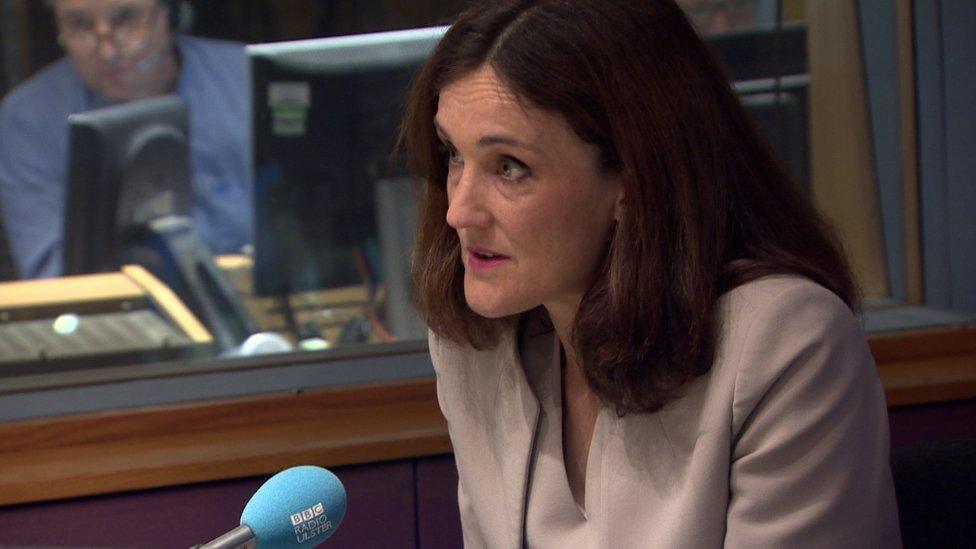
- Published18 September 2015
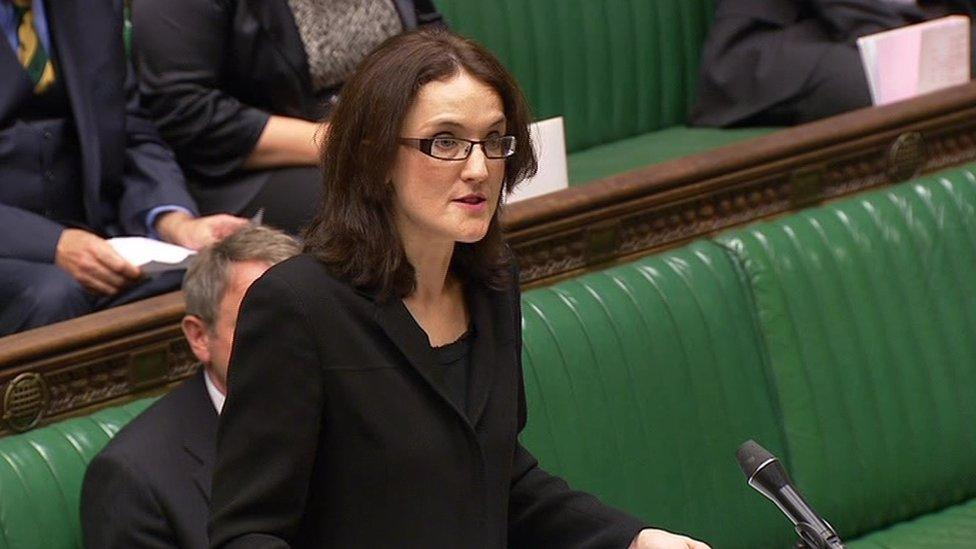
- Published17 September 2015

- Published13 November 2015
